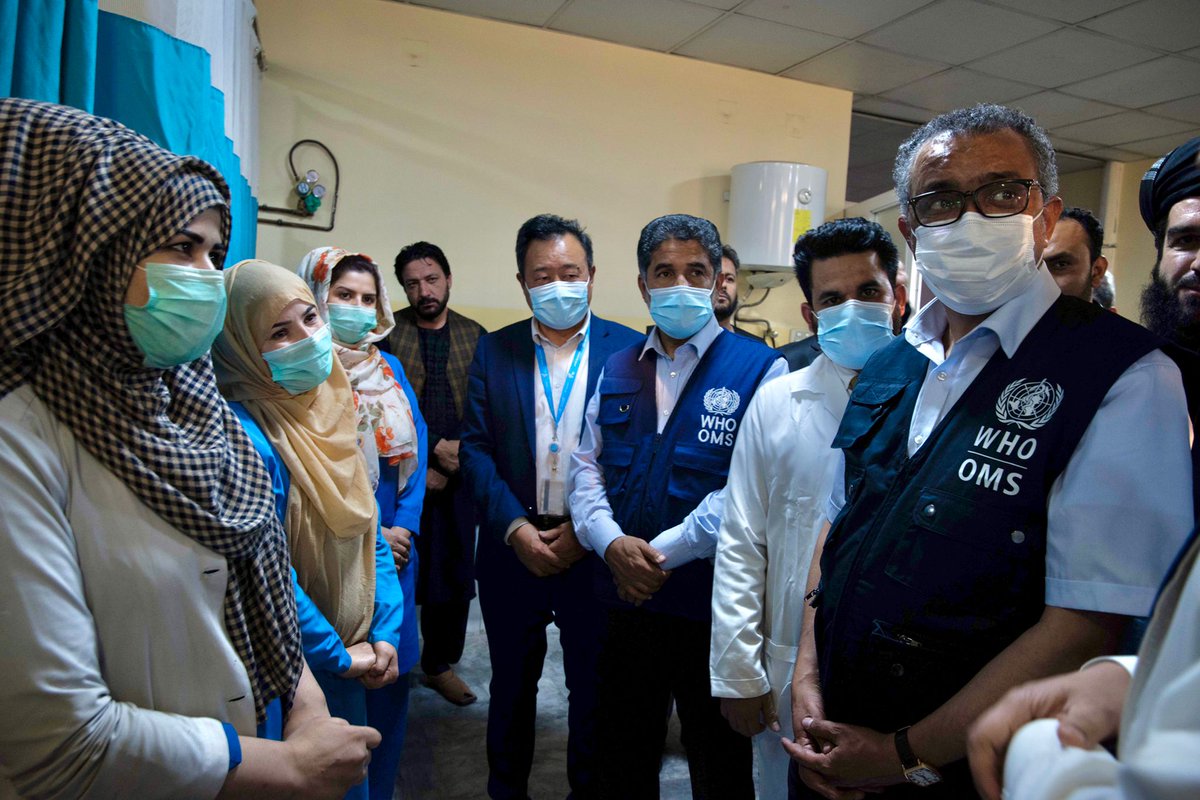
LIVE: Launch of the WHO Global Air Quality Guidelines with @DrTedros pscp.tv/w/dBnQEnR3LTE0…
"There is nothing more essential for life than air.
And yet because of #airpollution, the simple act of breathing contributes to 7 million deaths a year.
Almost everyone around the world is exposed to unhealthy levels of air pollution"-@DrTedros
And yet because of #airpollution, the simple act of breathing contributes to 7 million deaths a year.
Almost everyone around the world is exposed to unhealthy levels of air pollution"-@DrTedros
"Inhaling dirty air increases the risk of:
-respiratory diseases like pneumonia, asthma, chronic obstructive pulmonary disease
-severe #COVID19.
It’s also a major cause of other noncommunicable diseases like ischaemic heart disease, stroke, and cancers"-@DrTedros #AirPollution
-respiratory diseases like pneumonia, asthma, chronic obstructive pulmonary disease
-severe #COVID19.
It’s also a major cause of other noncommunicable diseases like ischaemic heart disease, stroke, and cancers"-@DrTedros #AirPollution
"#AirPollution is a health threat in all countries, but especially for vulnerable groups in low- and middle-income countries with poor air quality due to urbanization and rapid economic development, and air pollution in the home caused by cooking, heating and lighting"-@DrTedros
"Today, we’re proud to launch the updated WHO Global Air Quality Guidelines, which provide clear evidence of the damage air pollution inflicts on human health"-@DrTedros #AirPollution
"Since the last update in 2005, a substantial new body of evidence has accumulated, further demonstrating the degree to which #airpollution affects all parts of the body, from the 🧠 to a growing 👶 in a 🤰’s womb, at even lower concentrations than previously observed"-@DrTedros
"That’s why these new guidelines include lower recommended levels for pollutants including particulate matter, nitrogen dioxide, sulphur dioxide and ozone"-@DrTedros #AirPollution
"These new guidelines will have major implications for public health. They provide a practical tool for improving air quality around the world, and a robust evidence-base for developing national and local air quality standards"-@DrTedros #AirPollution
"They can also help to inform and strengthen policies in sectors including energy, waste-management, agriculture and transport"-@DrTedros #AirPollution
"For countries with high levels of #airpollution, the guidelines provide interim targets that can be used as milestones on the path to achieving the recommended air quality levels"-@DrTedros
"WHO is dedicated to:
-Supporting countries to fight against #airpollution
-Building the capacity & knowledge of #healthworkers to advocate for clean air
-Strengthening the ability of the health sector to work with other sectors to tackle the sources of air pollution"-@DrTedros
-Supporting countries to fight against #airpollution
-Building the capacity & knowledge of #healthworkers to advocate for clean air
-Strengthening the ability of the health sector to work with other sectors to tackle the sources of air pollution"-@DrTedros
"This is not a job for the health sector alone. It requires an all-of-government and all-of-society approach to improve the governance of air quality, the monitoring of #airpollution risks, and the engagement of all economic sectors in reducing emissions"-@DrTedros
"I urge all countries to put these [Air Quality] guidelines to use, to save lives, support healthy communities, and help address the climate crisis. These guidelines come at an important time, ahead of the COP26 #ClimateChange Conference in November"-@DrTedros #AirPollution
@DrTedros New WHO Global Air Quality Guidelines aim to save millions of lives from #airpollution 👇 bit.ly/3EMJ6Ob
• • •
Missing some Tweet in this thread? You can try to
force a refresh













